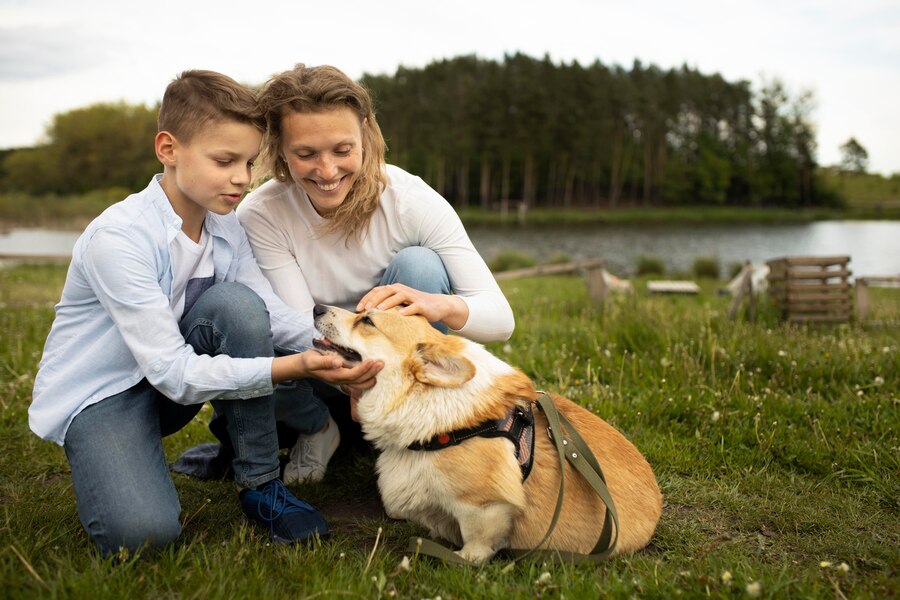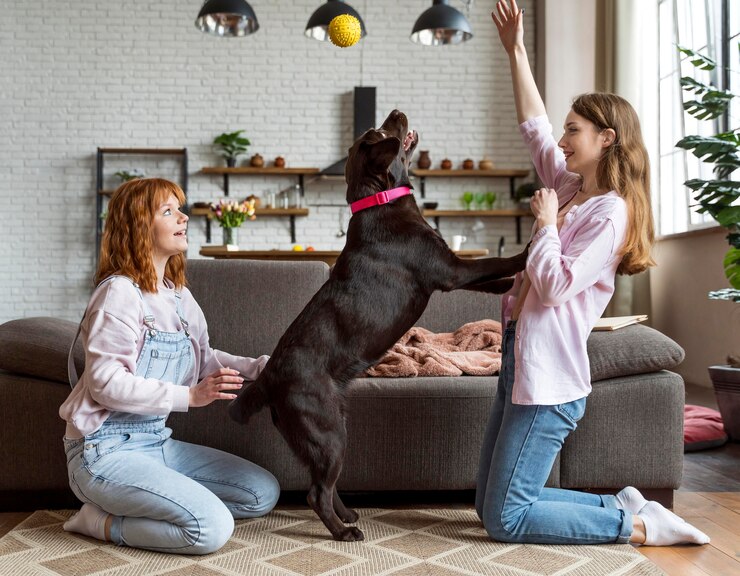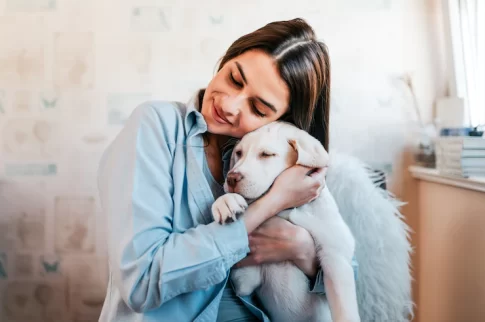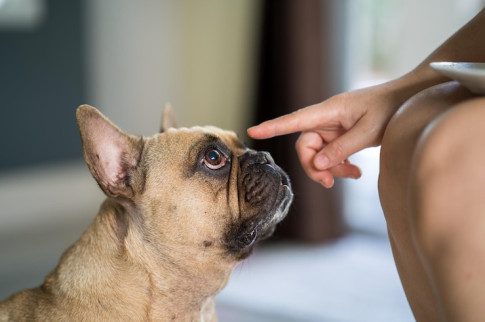Adopting Pets With Past Trauma: Tips For Pet Care

Table Of Contents
Whenever you bring home a new pet, along with happiness, challenges also crop up in your life. If the pet is ill-treated by the owner then your challenges will also increase 4X times.
You cannot ignore the reality from your end. Otherwise, things can become tricky for you when handling a pet. Try to understand the body language of your pet first. Understand its likes and dislikes.
All these factors will help you to keep your pet happy and jovial all the time. You cannot ignore it from your end. Keep the process in perfect parity.
Tips To Adopt Pets With Past Trauma
There are several tips you can adopt for pets that have past trauma. You should be careful in each of your actions in this regard. You must be well aware of the process that can assist you in meeting your requirements.
1. Gaining Your Pet’s Trust

If an animal has suffered abuse or neglect at the hands of a human, it is hardly surprising that they will be wary of the humans in their new home. The new pet will need time to trust their new owners, but if, during that time, the owner and everyone in their family follow some rules, the trust will build.
2. Give The pet space
In the excitement of bringing home a new pet, you will probably want to spend lots of time with them. But this can be counterproductive. The pet will need time to get to know their new surroundings, and you will need to give them space to do this. Make sure the home is calm by bringing your pet home at a time when you are not expecting any visitors. To begin with, let the pet become accustomed to being in the same room as you. Choose a pet-safe room where the pet has a bed, while you simply sit nearby. The pet will likely gain the confidence to come to you.
3. Get To Know Your Pet’s Body Language
Animals can’t talk, but they can have other ways of showing you what they want. If you notice that something triggers fear in a pet, you can make sure that it is kept away from them. They may prefer to eat when you are out of the room, in which case you can put the pet food down and respect their wish to eat alone. By looking for the cues the animal gives in certain situations, you can maximize the situations where the pet appears content and minimize situations that cause fear and anxiety.
4. Physical Contact

In time, you will have lots of cuddles with your pet but tread carefully in the early days as you get to know what your pet likes and what can add to their fear. If you approach your pet with your hand outstretched or from above give them a stroke.
They do not know that this is your intention and may fear that they are about to be hit. Instead, let your pet see your hand at eye level.
They may prefer to be rubbed under the chin rather than any action from above. If your pet gives any sign that it does not want to be stroked – such as by backing away, cowering, baring its teeth, or growling – respect that and back away yourself. Your pet knows that you will respect its wishes, it will be more likely to feel confident in coming to you for physical affection.
5. Routine
Establish a routine for your pet, and it will more quickly come to recognize that its needs will be met. Give food at set times each day and put it in the same place. Depending on the pet there may be other routines you need to observe. Set times when you allow your dog outside for toileting or when they are taken for exercise. In the case of a cat, you can keep a litter tray in one place and change it regularly.
6. Professional Help
Look out for signs that may mean your new pet has been treated particularly badly, and never be afraid to seek professional help if necessary. If your pet shows aggression, long-term anxiety, or any other sign that their problems are not easing, consider getting this professionally investigated.
A vet can check the pet, making sure there are no physical causes for your pet’s behavior, and can prescribe medication if necessary. They can also be a useful source of advice. You can also engage the services of a behaviorist who can work with both you and your pet to help you find ways to make your pet feel more secure.
Another useful source of help may be the shelter where you acquired the pet. They may have gotten to know your pet well in the time they were there and may have some tips on how to help. Shelters are keen to ensure the adoption works and should provide you with all the necessary information to help.
When adopting a rescue pet, it is worth using a shelter that operates a screening process to ensure you and your pet are well-matched. Forever Homes is a policy that Virginia Chipurnoi, a lifelong animal lover and president of the Humane Society of New York, implemented at their shelters. Through this screening program, they look for pet/owner compatibility to create long-lasting, quality relationships. Going through a screening process will increase the chances that the abused pet you are matched with will thrive in your home.
7. Training
Training your pet is a great way to build a bond with them and will help your pet feel more secure. Positive reinforcement rather than negative, punitive training is the best way to train any animal. It is particularly important when working with a pet that has been abused or neglected. Reward good behavior, and when pets display negative behavior, redirect them and be ready. You can reward them as soon as they do as directed.
8. Be Patient
When adopting a pet that has been abused or neglected, patience is the number one tip that underpins all other advice. The days, weeks, months, or even years your pet suffered in a cruel or neglectful home will take time. But time spent building your new pet’s trust and security will pay off as you see them blossom into a confident, contented animal who will give you a lifetime of love and loyalty.
Final Take Away
Hence, these are some of the techniques you can employ while adopting pets with past trauma. Here, you need to stay diligent regarding the behavior of your pet. Otherwise, things can become worse for you in the future.
You can share your views and opinions in our comment box. This will help us to know your take on this matter. Once you follow the correct process, things can become easier for you. Ensure that you follow the perfect process from your counterpart.
Having a pet in your home is a wonderful thing. But to know it and maintain it properly is a challenge. So, you must be well aware of the process that can help you in doing it perfectly.
Read Also:
You May Also Like

October 17, 2022
How To Get Low Cost Pet Care

September 16, 2022
4 Awesome Reasons For Getting A Dog

September 2, 2022






















